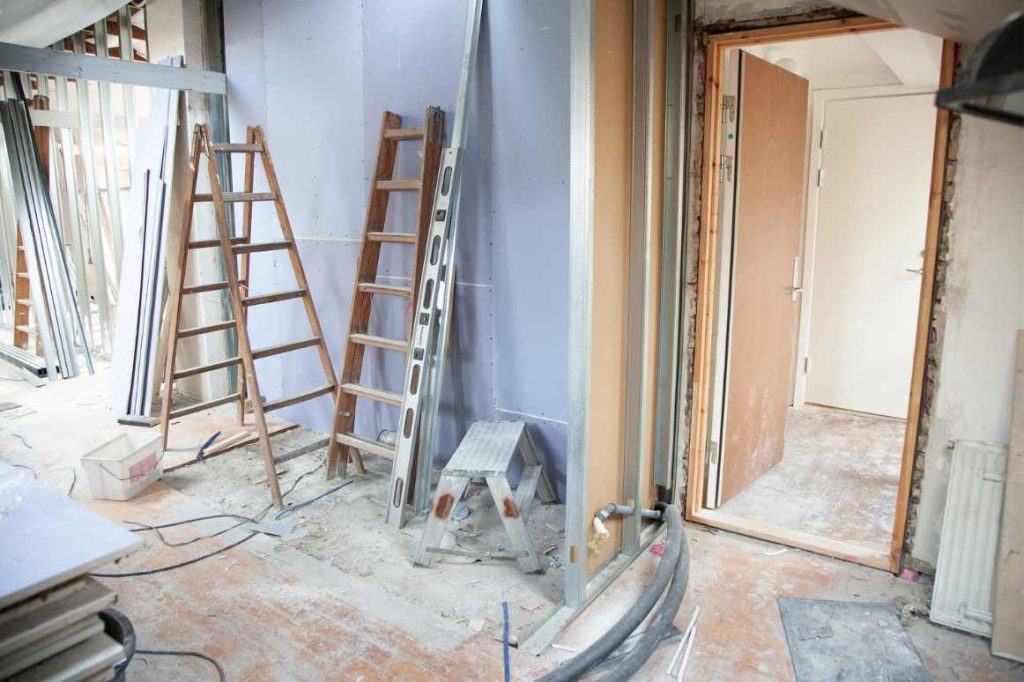
Home » Maintenance » Renovation Approvals in a Body Corporate
A personal approach
to body corporate management
That’s why we take the time to listen, tailoring our management approach to suit every person, their communication style and business preferences.
Receive an obligation
free proposal
Please contact us here if you are seeking a proposal for a building we don’t currently manage. If you are an existing BCsystems customer please email us at info@bcsystems.com.au
In a community titles scheme, you’re not just managing your own space, but part of a larger property shared with other lot owners. This means any changes you make could affect the common property, impact the building’s insurance coverage, or interfere with the peaceful enjoyment of others in your complex.
Approvals are ultimately there to protect you, your neighbours, and your property. By following the correct process, you can renovate with confidence and avoid the stress of non-compliance.
What Type of Approval Is Required?
Depending on the type and scope of your renovation, you may need approval from the body corporate, your local council, or both. These approval pathways help ensure renovations align with the scheme’s rules and protect the interests of all owners.
1. Body Corporate Approval
Most renovations will require some form of body corporate approval.
- A lot improvement by an owner to the common property under $3,000 (including GST) can be approved by the committee.
- A lot improvement by an owner to the common property that exceeds $3,000 (including GST), requires owner consideration at a general meeting.
- Where an owner is seeking to lease a part of common property or add/change their exclusive use area, this would require owner consideration at a general meeting, usually through a resolution without dissent, as it affects the rights and interests of all other owners in the scheme.
2. Council or Local Authority Approval
Some renovations may need approval from your local council or a private certifier in addition to body corporate consent. This is typically required for work that involves structural changes, plumbing or electrical modifications, works that impact existing fire safety installations (fire walls or fire doors), or any major works that require a building approval from a local authority, such as a garage, roof extensions or enclosing certain areas of the original part of the building.
Depending on the nature of the renovation, you may need a development approval, building approval, or certification to ensure you comply with Queensland’s building codes and planning laws. These approvals focus on safety, amenity, and legal use of the space and are separate from your body corporate’s concerns.
Even if the body corporate gives its approval, you must still obtain any necessary council permissions before starting work. When in doubt, check with your local authority or consult a qualified certifier.
3. Consent Under Your Scheme’s By-Laws
By-laws often include rules around internal and external renovations, especially when it comes to noise and the hours that tradespeople can access the building.
For example, many schemes require approval before installing timber or tile flooring due to the potential for noise transmission to neighbouring lots. Others may restrict external alterations that affect the appearance of the building, such as installing screens, awnings, or new windows. Some by-laws also outline practical conditions like booking lift access or limiting work to certain hours.
It’s important to review your scheme’s by-laws before starting any renovation. Even if the work seems minor, you may still need written consent from the committee or body corporate.
Examples of when approval may be required
Not all renovations require formal approval from the body corporate. As a rule of thumb, any renovation that affects common property, changes the external appearance of your lot, or involves structural work will likely require approval.
Here are some common scenarios where approval is typically needed:
1. Structural Changes
When removing walls, altering plumbing or electrical layouts, or installing skylights or solar panels, you’ll need to seek approval from the body corporate. You may also need separate certification or permits from your local council or a building certifier.
2. External Changes
Changes that alter the external appearance like replacing windows, changing balcony balustrades, installing privacy screens, or even some types of air conditioning units require approval. These works may impact the uniform look of the scheme or involve common property.
3. Works Affecting Common Property
In a building format plan, areas like walls, floors, ceilings, roofs, balconies, and external doors or windows are often classified as common property as the body corporate is required to maintain these elements. If your renovation encroaches on any of these elements, even partially, approval is generally required. This might also apply to exclusive use areas, like courtyards or patios.
4. Installation of Hard Flooring
Installing hard flooring, such as tiles, timber, or vinyl planks, can significantly increase noise transmission, particularly in multi-level buildings. As a result, many schemes have specific by-laws that require body corporate approval before any hard flooring is installed. Additionally, all hard flooring must be designed and installed in accordance with the relevant building and acoustic standards.
5. Permanent Additions in Exclusive Use Areas
Exclusive use areas may feel like your own private space, but they’re technically common property. If you’re planning to install a deck, pergola, garden bed, or any permanent fixture in this area, you’ll likely need approval.
6. Any Renovation That Could Impact Others
Even if the work is entirely inside your lot, if it creates noise, dust, odours, or temporary access issues for other residents, approval may still be required, or at least notification and compliance with certain conditions under the by-laws.
In Summary
When making any changes to your lot, internal or external, it is always important to review your schemes’ by-laws first, communicate your intentions with the committee and a caretaker (if your scheme has one) and obtain as much relevant information about your proposed change to your lot to assist in the consideration and approval process. Applications that lack detail or information can slow the approval process down.
It is also important to discuss your proposed change to your lot with your body corporate manager as they will have a unique understanding of your scheme and what requirements might be required to assist you in gaining your approval.
Related content
Share This Post
Subscribe To Our Newsletter
More To Explore

7 Reasons to Live in a Body Corporate Community
Whether in a townhouse complex, apartment building, or mixed-use development, body corporate living combines convenience, shared management, and a sense of community that traditional home ownership doesn’t always provide.

Roofs and Gutters in a Body Corporate Community
Responsibility for maintaining roofs and gutters in a body corporate depends on how the property is registered – either under a building format plan (BFP) or a standard format plan (SFP). These survey plans define where lot boundaries sit and, in turn, determine whether a roof or gutter forms part of the common property or is the individual owner’s responsibility.


